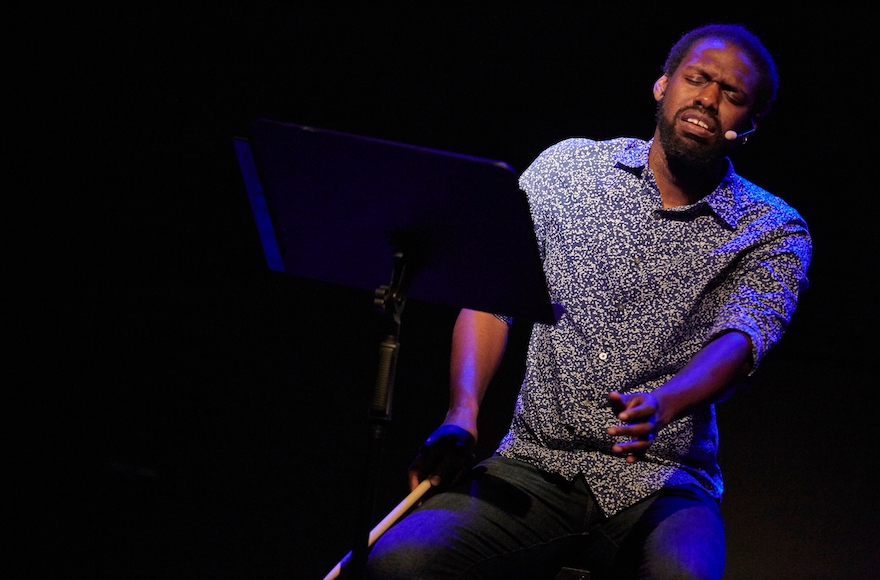(JTA) — Anthony Mordechai Tzvi Russell has performed Yiddish music around the world. He is part of a musical duo that creates new interpretations of classic Yiddish songs. In 2017, he even won the Yiddish version of “American Idol.”
Still, the singer gets one request consistently that has nothing to do with Yiddish or klezmer music: to perform traditionally African-American music.
“I always got a little defensive about that because if I’m going to literally perform my blackness for an audience, I want it to be on my terms. I don’t want the terms dictated to me,” the 37-year-old former opera singer, who is black and Jewish, told JTA.
In “Convergence,” Russell aims to do just that, melding Jewish songs, mostly in Yiddish, with traditional African-American ones. The album, released last week, is a collaboration between Russell and the klezmer band Veretski Pass.
“The whole ethos of the project, at least for me was, if there was a historic African-American Jewish music, if that was a real thing, what would it sound like?” he said in a phone interview Monday.
An example of how he imagines that musical culture can be heard on “Rosie,” a work song written by African-American prisoners at a Mississippi State Penitentiary work camp in the 1940s.
Eventually it bridges into the instrumental part from “Es Iz Shoyn Shpet” (It is Already Late), a Yiddish song meant for newlyweds. The sorrowful melodies are mixed together skillfully aided by Russell’s smooth bass voice.
Toward the end of the track, the voice of a newscaster is heard announcing the high incarceration rate of black men in the U.S. today, reminding the listener of slavery’s legacy.
Russell was inspired to write the track after the news broke that George Zimmerman, a neighborhood watch coordinator, was acquitted of charges in the shooting death of Trayvon Martin, an unnarmed black teenager.
Russell said the project allows him to honor all the parts that make up his identity.
“When I made a decision to become a Jew, it wasn’t a decision to completely leave entire parts of myself behind. Of course it was a decision to leave the bacon- and shrimp-eating parts of myself behind, which is very hard because it’s in my ‘yerusha,’” he joked, using the Hebrew term for inheritance.
“But I still wanted to be very much myself as a black man, as somebody who is responsive to black culture and black history, that’s somebody who I wanted to be while I was also being Jewish. So it’s almost like the project as an outgrowth of that need to stay true to myself while making that very conscious decision to be Jewish.”






